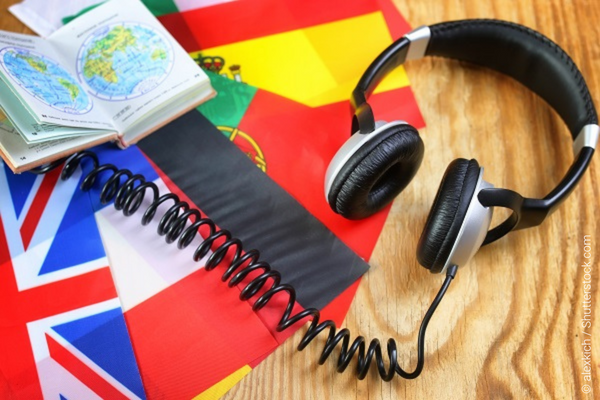The importance of communicating in foreign languages

What do languages mean to Europe?
Communication in foreign languages is one of the eight key competencies defined by the European Reference Framework. It consists in the ability to understand spoken messages, to initiate, sustain and conclude conversations and to read, understand and produce texts appropriate to one’s individual needs. A positive attitude involves the appreciation of cultural diversity and an interest in and curiosity about languages and intercultural communication.
Language teaching and learning is essential to ensuring that European citizens can move, work and learn freely throughout Europe. This will help boost jobs and growth, and contribute to a mutual understanding of other countries and cultures. It is also essential to ensure that language deficiencies are not a barrier to participation in society. The role of the European Commission is to coordinate efforts with national governments to pursue the objectives of the strategic framework for languages with support from the activities of Erasmus+.
It should also be noted that growing numbers of school children in the EU have a mother tongue other than the main language of instruction used in school. The report Language teaching and learning in multilingual classrooms (2015) brings forward successful strategies for language learning in multilingual settings, including a comprehensive literature review on the topic.
See Dr Dina Mehmedbegovic explain what bilingualism is and why is it important in this Education Talk.
Promoting multilingualism at European level
The European Day of Languages (EDL) is one of the concrete European-level activities. It takes place every year on 26 September to highlight the importance of diversifying the range of languages one learns, especially with an eye to intercultural understanding. The EDL website offers a variety of ways to get involved: teaching materials, public events, language quizzes, etc.
Another initiative is the European Language Label (ELL), which awards and encourages new initiatives in the field of teaching and learning languages. The ELL is awarded to local, regional and national projects that have found creative ways to improve the quality of language teaching, motivate students, make the best use of available resources to diversify the languages on offer, and other innovative initiatives. Find award-winning initiatives in the ELL database and watch the video for more information!
The School Education Gateway provides plenty of reading material on this topic, including the expert opinion pieces When content and learning join up, great things can happen, Inclusion and Languages in the Early Years, and Beyond English: (other) languages (also) take you further.
You will also discover inspiring language learning projects in the following practice articles: Different faces of language learning and Language learning – A skill for life, or the article on the Saarland region Border regions: learning the neighbour’s language.
Get inspired! Further resources
Developing Online Teaching Skills (D.O.T.S.): Would you like to use up-to-date technology in your teaching but don’t have the time or resources for the necessary training? Try the Developing Online Teaching Skills (D.O.T.S.) training kit: it includes training units of bite-size activities for online language teacher training, suggestions for reflective activities, and collaborative tools for sharing “self-training” experiences, all of which can be completed in around 30 minutes! Give the D.O.T.S. training kit a try here.
ConBat+ (Content-Based Teaching + Plurilingual/Cultural Awareness): Classrooms today include more and more learners from a wide range of linguistic and cultural backgrounds, and managing diversity is an increasing challenge for educators. The ConBat+ kit presents an innovative way of overcoming this challenge by combining plurilingual and pluricultural approaches with content-based instruction. Download the training kit.
Online Linguistic Support (OLS) supports language learning for Erasmus+ participants in long-term mobility activities (Key Action 1). Participants in the mobility activities can assess their skills in the foreign language(s) they will use to study, work or volunteer abroad. Participants may also follow an online course to improve their language competence. Since its launch in October 2014, the number of Erasmus+ participants taking online language courses with OLS has grown steadily.
European Language Portfolio (ELP) is a personal document in which learners of all ages can record their language learning and cultural experiences at school or outside school. It consists of three parts: a language passport, a language biography and a dossier. Read more about the ELP here and have a look at all the portfolios available in the ELP database.
